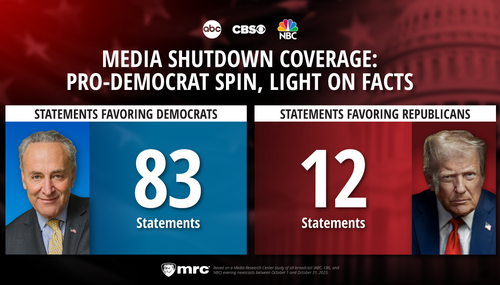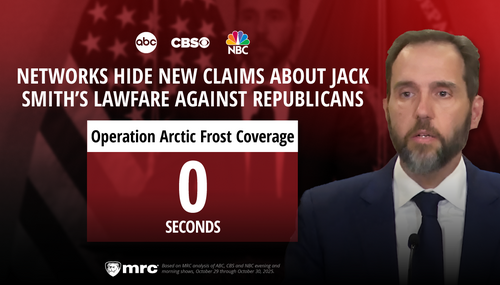With Katie Couric lounging in the wings, Dan Rather is now expendable, and the suits at CBS News are squeezing him out of his last remaining gig on "60 Minutes." This has caused great distress for those who like their news to look like a long commercial for MoveOn.org, which is to say, the Dan Rather fan club.
CBS smiled politely as they pushed him away, but the Philadelphia Inquirer quoted an anonymous former CBS executive, who denounced the shove-off as "disgraceful. He's a legend. He gave his life to that company. Even though he made a big mistake, he did 43 years and 11 months' great work."
If Rather’s that great, why didn’t the executive have the courage to go on the record?
Rather had a Nixonian ending, resigning from the anchor chair in disgrace after being in complete denial about his own political corruption. It’s not surprising that some will now try to rehabilitate his reputation, but they won’t have much more luck than Nixon did. Dan Rather does not have a sterling record of journalism. He is a grand example of the anchorman as a powerful and partisan national politician who never had to be elected, yet had a lot more visibility and wielded a lot more influence than most elected officials.
There is a rich irony here. It was that very zest for power – in this case, a story that would have destroyed the re-election hopes of President George Bush – that backfired and cost Rather his career.
The shameful "scoop" charged President Bush with the surprisingly puny offense of missing some of his National Guard duty (yes, puny, compared to young Bill Clinton completely skipping out on the University of Arkansas ROTC.) Rather breathlessly delivered his "umimpeachable source," Bill Burkett, who turned out to be a Bush-hating fruitcake. He sent documents by fax, and the document examiners CBS hired warned they were inadequate at best, yet Rather went full steam ahead. It was not thorough or thoughtful journalism. It was not defensible. It was flat-out embarrassing, akin to Janet Cooke’s non-existent eight-year-old heroin addict.
This was not the first time Dan Rather tried to savage a member of the Bush family on national television. Rather’s 1988 interview with then-Vice President Bush was another low point. After a hatchet-job taped piece on Iran-Contra leading into the interview, Rather bullied Bush, constantly interrupting him, suggesting that many Americans didn’t believe his account of what he knew about the arms-for-hostages deal. Bush’s haymaker punch of a response – If you want to rehash Iran-Contra as the only part of my career, how would you like your career defined by your pouty performance, walking off the set when tennis delayed your newscast? – was absolutely the most satisfying TV moment President Bush ever handed to conservatives.
If Rather was this tough on every president or potentate, we could accept that. But he wasn’t. Rather secured two interviews with Saddam Hussein, both on the verge of his wars with the United States, one with 1990, one in 2003. In both of these interviews, Rather treated Saddam with extreme deference, like a world statesman. He asked in 1990 if Saddam thought Kuwait was "Vietnam in the sand for the United States." He sounded in 2003 like he and Saddam were on an airstrip in Casablanca: "Given the sober moment and the danger at hand, what are the chances this is the last time you and I will see each other?" Rather gained the access, and wasted it on his own vanity.
When it came to the Clintons, Rather was even more of a manicured poodle. In his first interview with President Clinton, on March 25, 1993, Rather began by asking if Clinton had a cold, then added: "I don't know anybody who knows you well who isn't worried about your lack of sleep. Even Mrs. Clinton recently mentioned it. How much do you sleep?" He did the same favor for Hillary that year, saying "I don’t know of anybody, friend or foe, who isn’t impressed by your grasp of the details of this [health care] plan."
Rather secured the first post-impeachment interview with President Clinton in 1999, and it was peaches and cream again. There was no time for rough questions, for Juanita Broaddrick, or fundraising from Chinese nationals. Rather began by asking if Clinton knew the duties of the husband of a U.S. Senator. When he arrived at the impeachment questions, Rather asked: "We’re here in a room with pictures of Lincoln, Washington, Continental Congress. When you look back over this year plus, what’s the moral of it? Does it have a moral?"
There is a tragic component in thinking about this. After 43 years and 11 months in the national spotlight, Dan Rather is leaving, and won’t be missed.




